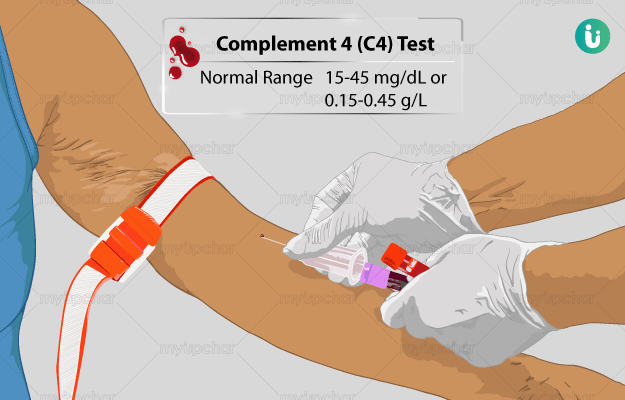What is a Complement 4 (C4) test?
Compliment 4 or C4 is one of the 20 proteins of the complement system - an important component of the body’s immune system. They are present in an inactive form in the blood and body fluids and are only activated after the entry of an infectious agent or antigen (a foreign substance). The main function of the complement system is to activate white blood cells (WBCs) to kill invading bacteria and viruses and prevent infection. It also promotes the removal of dead cells from the body. However, disorders in the complement system may cause the immune system to attack the healthy cells of the body, resulting in inflammation and autoimmune diseases.
A C4 test measures the level of C4 proteins in the blood. It is commonly done along with a C3 test to determine detect the cause of repeated infections and diagnose autoimmune diseases such as systemic lupus erythematosus (SLE), rheumatoid arthritis and rheumatic fever.






























